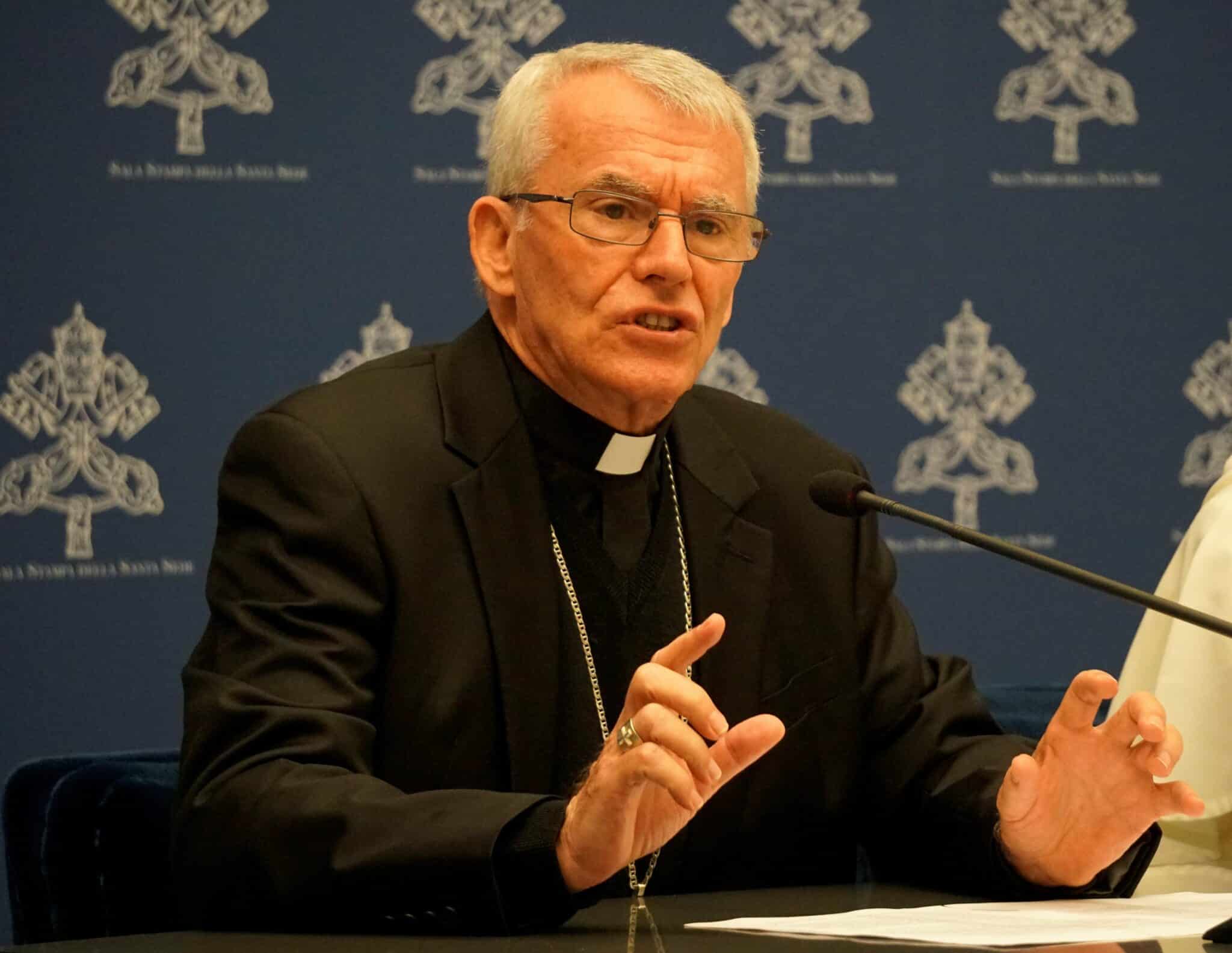
Catholics gathered at the continental level say the Catholic Church must be united, not uniform, and embrace its many forms of expression throughout the world, said members of the synod preparatory commission after a weeklong meeting at the Vatican.
“I think one of the most important things we have experienced during these ecclesial, continental assemblies, is that there is in fact more than one way of being the church,” said Archbishop Timothy Costelloe SDB of Perth, a member of the commission and president of the Australian Catholic Bishops Conference.
“We’re beginning to experience a profound unity, which is not grounded in uniformity,” he said at a news conference at the Vatican on 20 April.
“There are universal principles that are a kind of positive expression of uniformity, but they all have to be incarnated in context of the local reality.”
The commission gathered in Rome to reflect on findings from the continental stage of the process leading up to the assemblies of the Synod of Bishops at the Vatican in 2023 and 2024.
Archbishop Costelloe said that while it’s true “some people have struggled with the synodal process” and “don’t understand it,” he said the synod’s global outreach is an invitation for the church to “identify, hear and recognise the voice of the Holy Spirit in this multiplicity of voices that are coming forward” through the synodal process.
“Diversity is already a reality in the church and something we need to acknowledge and begin, more and more, to celebrate and be grateful to God for,” he said.
Xavière Missionary Sister Nathalie Becquart, undersecretary of the synod, said the aim of the continental stage of the synod, which brought together bishops’ conferences and other church assemblies, was to “to integrate this idea of circularity among all levels of the church.”
“We need a new way to relate between the center of the Roman Curia and the local churches,” she said, recalling how during her visit to Oceania’s continental assembly a bishop told her, “usually, it’s us coming to Rome, this time it’s Rome coming to us.”
Archbishop Costelloe said that the commission’s meetings with the prefects and staff of the Vatican’s many dicasteries allowed for an exchange that connected the work of the Curia and the realities of the local church.
“It’s never good for people to walk around in some kind of little bubble in which all they hear is people who agree always with them,” he said.
“We need to break out of that bubble, and this was one of the ways in which that could happen.”
Part of that effort also involved an ecumenical element, in which “Catholic listeners” from the general secretariat of the Synod attended four conferences on synodality in other Christian traditions.
Reflecting on the many realities of the church she witnessed in attending continental synodal assemblies, Sister Becquart said that the synodal process “helps us realise that we are not only in a multipolar world, but also church.”
She explained how churches in different continents offer unique cultural “gifts” to the spirit of synodality: Africa and its understanding of the church as family, Asia and its pursuit of harmony and the Middle East which is marked by a long history of ecumenism.
Those contributions, she said, show how “diversity can also be a path toward unity.”
The findings from the synod’s continental stage will be assembled into the working document for the synod’s universal phase, which will bring representatives of the world’s bishops and others to the Vatican in October.
Archbishop Costelloe said while it is “tempting to want the conclusions now,” it is important to remember that the synod is a long process of prayer and communal reflection, the outcome of which no one can predict.
“We have to be open to a very different approach to these things rather than be very analytical or calculated,” he said. “It’s not just an intellectual exercise, it really is an exercise in discernment.”
Justin McLellan/OSV News
